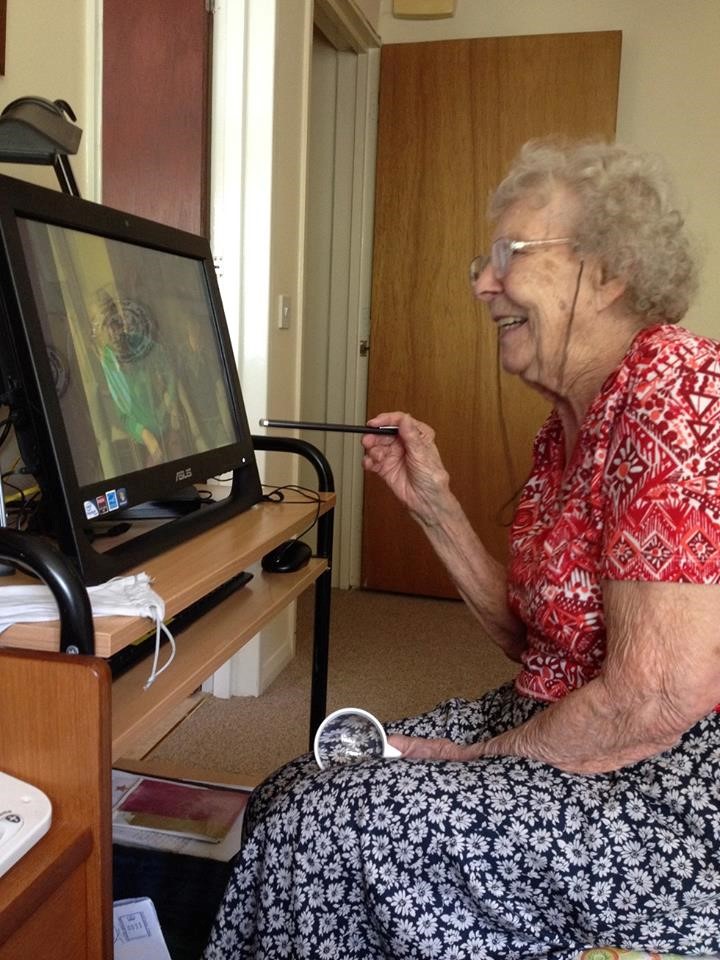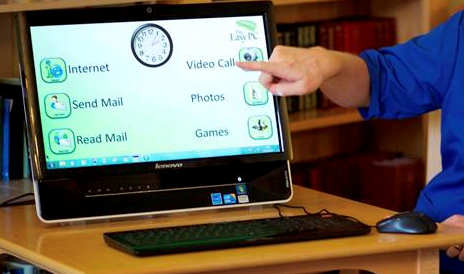Results from a social experiment conducted in the UK and Italy reveal promising insights into the usefulness of ICT and social networking on the mental health of ageing Europeans.
Recent research conducted in the UK and Italy finds that training older Europeans to use computers, and specifically social media, can promote social interactions, increase feelings of competence, and contribute to positive health outcomes.

Source: Ages 2.0
Addressing social isolation through technology could be a cost-effective way to counter the rising costs of elder care, according to Eddie Copeland, author of Technology Manifesto. Copeland said,
“Being able to simply write an email or access a social networking site could provide older people with a way to stay connected to their friends and families, who may live hundreds of miles away. Maintaining these important relationships will help an ageing society vulnerable to loneliness and disconnection [in] a fast moving modern world.”
With 21% of the population over age 65 in Italy, and 17% in the UK, finding a way to increase social connectivity and decrease loneliness among the aged is both a matter of policy (i.e., bridging the digital divide) and health.
ICT Use among Older Europeans
Within Europe, there is significant regional diversity in terms of Information and Communication Technology (ICT) use. In the UK, 56% of adults over the age of 65 who use the Internet say they go online daily. In Italy, only 21% of adults over 65 use the Internet, and usage drops to 4% of those over 75.
It is no surprise that, like Internet use, social media use decreases with age. Among internet users in the UK, 96% of 16-24 year-olds use social media at least quarterly, compared to 85% of 25-34 year-olds, 72% of 35-44 year-olds, 66% of 45-54 year-olds, 37% of 55-64 year-olds, and 33% of those over 65. Facebook, Twitter, and YouTube were the most commonly used social networking sites, regardless of age.
Feelings of Loneliness and Social Isolation Increase with Age
Changes in social support networks and feelings of loneliness are factors that can significantly impact a person’s sense of mental wellbeing—especially for those over the age of 65. According to the Office of National Statistics, 34% of those 52 and over reported feeling lonely sometimes or often, compared to 46% of those 80 and over.
Social connectivity has a direct impact on one’s quality of life. But social connectivity also has an impact on one’s health. Research shows links between increased social connectivity and reduced levels of morbidity and mortality.
Graying on Social Media: Results from Ages 2.0 Are Promising Despite Regional Differences
Researchers from the private, public, and academic sectors in the UK and Italy conducted a social experiment to determine the effects of introducing online social networking to seniors. To determine if social networking training could facilitate active ageing and digital inclusion, participants over the age of 65 were recruited from residential and home-based treatment programs.
Over 200 participants (roughly half from England and half from Italy) were randomly placed in test or control groups. Those in the test group received three months of Easy PC computer training, which is aimed at providing older adults with the necessary skills to use computers as social tools.

Source: Ages 2.0
Test participants from the UK reported feeling more competent, had increased social network activity, and had more positive attitudes about computers than the control group. The training seemed to help those living in residential care maintain a sense of self in the face of declining health.
One caregiver noted that, as a result of the training, her patient was developing “better relations with her family as they email news and photos regularly and she is keen to show others her large, growing family.”
Another provider noted the usefulness of computer-facilitated communication for people with hearing impairments.
“[He] is quite hard of hearing so he can miss things over the telephone. Because email is not reliant on hearing, [he] was in regular contact with his son, […] and they were able to discuss more and be in touch more. [He] also received an email from his granddaughter who had not been in touch for several years.”
The social norms regarding elder care in Italy are different than the UK. In Italy, residential treatment is considered the last option for care. Individuals are more likely to live with family members as they age. With only the most vulnerable in residential settings, Ages 2.0 researchers had some difficulty maintaining control over randomization in their experiment.
Italian training participants showed some evidence of increase cognitive capacity over the course of the 3-month period, as well as increases in competence compared to the control group.
Overall, results from Ages 2.0 suggest that training older adults to use computers can promote social interaction and feelings of competence with some regional variation.
Project manager Lucia Di Furia told nuviun that the group hopes to “propose a policy that will implement the AGES 2.0 experience on a larger scale…This may take some time, but the impact of the AGES 2.0 project was too relevant not to promote it further.”
Jenn Lonzer has a B.A. in English from Cleveland State University and an M.A. in Health Communication from Johns Hopkins University. Passionate about access to care and social justice issues, Jenn writes on global digital health developments, research, and trends. Follow Jenn on Twitter @jnnprater3.


